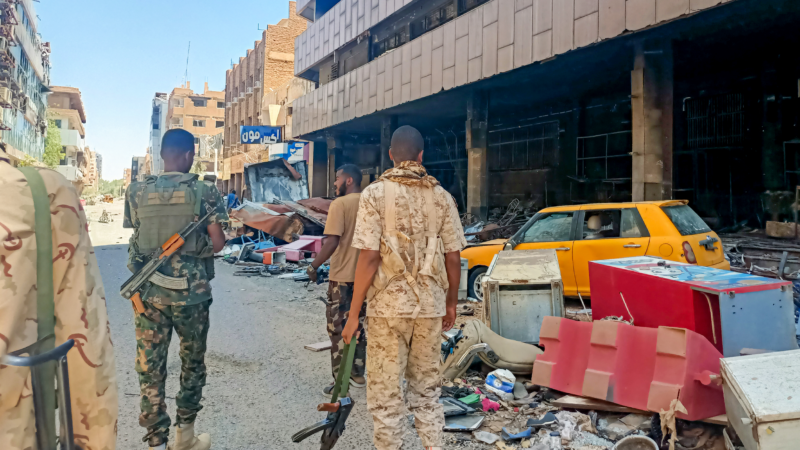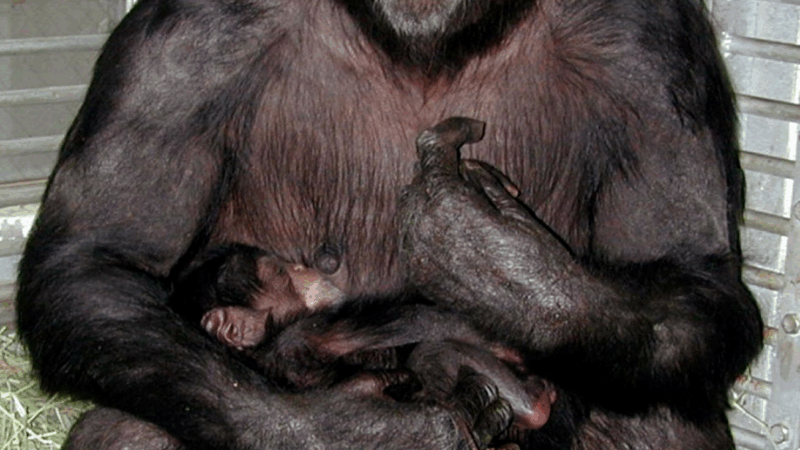In ‘free’ Khartoum, the ruined streets smell of perfume and music plays
JOHANNESBURG, South Africa — “I felt the air was lighter, I felt very joyful. I felt a lot of emotions, I was overwhelmed on that morning.”
That’s how Khartoum resident Duaa Tariq described feeling when the Sudanese capital was liberated from almost two years of brutal paramilitary occupation over a week ago.
Tariq, who gave birth to her first child while Khartoum was under siege, has played an active role in the Emergency Response Rooms, a community group that was nominated for the Nobel Peace Prize last year for their life-saving work during the civil war. Throughout this time NPR has stayed in touch with her.
The paramilitary Rapid Support Forces (RSF) had dominated the capital for most of the war, with the Sudanese army forced to set up a wartime hub at Port Sudan on the Red Sea coast.

(Via Duaa Tariq)
But last week, the Sudanese Armed Forces (SAF) finally broke the deadlock and regained control of the city and army head General Abdel Fattah al-Burhan returned to the Presidential Palace.
The conflict in Sudan broke out in April 2023 amid a power struggle between General Burhan’s SAF and the RSF, led by Mohamed Hamdan Dagalo, known as Hemedti. So far, the war has killed as many as 150,000 people (although the figure is likely to be much higher) and displaced some 15 million, creating the world’s biggest humanitarian crisis.
Tariq, an activist in her early thirties, said that in the days since the army retook the city from the RSF, she’s enjoyed doing the small, ordinary things that were impossible when Khartoum was a conflict zone.
“I rode a bicycle and I went grocery shopping without hiding the money in my chest. I was laughing in the streets, I played music,” she tells NPR. “I took my phone with me on the way out as there were no soldiers to loot it. I did simple things, but it felt so different.”
“There’s a lot of people in the streets now. We’re smelling perfumes, people are wearing perfumes now, wearing very nice clothes,” she adds. “We hear the joy and sounds of the children.”

Khartoum, a once-charming and vibrant city at the confluence of the banks of the White and Blue Niles, is now a shadow of its former self, after years of shelling reduced much of it to rubble. After the army retook the city, it also found that the national museum, which housed priceless antiquities from the Nubian kingdom, had been looted by the RSF on a massive scale.
While retaking Khartoum is a symbolic and strategic victory for the army, the wider war is far from over. Elsewhere in the gold-rich country, the RSF remains in control, including in Darfur region in the west of the country where it has been accused by the US of committing genocide.
“We must wonder whether the RSF as they retreat westward will connect with the forces already there and whether they will attempt to make Darfur a fiefdom,” Eric Reeves, a U.S. scholar who has researched Sudan, told NPR.
At the same time, the Sudanese Armed Forces, who have also been accused of war crimes, are “anything but good guys,” he stressed. He added that while the successes in Khartoum were important, “that’s the center and Sudan has always been defined by center-periphery conflicts.”
Already there have been accusations of Sudanese army atrocities in Khartoum. UN High Commissioner for Human Rights Volker Türk issued a statement on Thursday condemning “the credible reports of numerous incidents of summary executions of civilians in several areas of Khartoum, on apparent suspicions that they were collaborating with the Rapid Support Forces.” He has called for a full investigation.
“We’re at a new stage of the war,” Ahmed Soliman, Horn of Africa researcher at British think tank Chatham House told NPR. Soliman said the RSF will now have to “regroup and consolidate and then we will see what the new phase of the conflict looks like and whether the army itself sees it as a moment to try and defeat the RSF in its stronghold in Darfur.”
“Or whether or not it returns to more tried and tested routes, which is to promote insurgency and use allied militia forces … to fight conflicts in the peripheries in Darfur,” he continued.
The RSF has also said it intends to form a parallel government, which the African Union has warned could risk partitioning the country.
Back in the capital Khartoum, Tariq is enjoying this moment of joy. “The place looks festive. It’s completely destroyed, but the people are festive.” But she, like others, knows there is much to rebuild.
But what resonates most for her are all the friends she’ll never see again now that the war in Khartoum — but not the country — is basically over.
“We lost a lot of volunteers within our emergency response rooms and we lost so many people, family members, loved ones, friends, neighbors. I (can’t) forget the faces of the people I knew,” she says.
Trump says 8 EU countries to be charged 10% tariff for opposing US control of Greenland
In a post on social media, Trump said a 10% tariff will take effect on Feb. 1, and will climb to 25% on June 1 if a deal is not in place for the United States to purchase Greenland.
‘Not for sale’: massive protest in Copenhagen against Trump’s desire to acquire Greenland
Thousands of people rallied in Copenhagen to push back on President Trump's rhetoric that the U.S. should acquire Greenland.
Uganda’s longtime leader declared winner in disputed vote
Museveni claims victory in Uganda's contested election as opposition leader Bobi Wine goes into hiding amid chaos, violence and accusations of fraud.
Opinion: Remembering Ai, a remarkably intelligent chimpanzee
We remember Ai, a highly intelligent chimpanzee who lived at the Primate Research Institute of Kyoto University for most of her life, except the time she escaped and walked around campus.
The near death — and last-minute reprieve — of a trial for an HIV vaccine
A trial was about to launch for a vaccine that would ward off the HIV virus. It would be an incredible breakthrough. Then it looked as if it would be over before it started.
Bessemer data center developer to request rezoning for additional 900 acres
The city’s attorney informed council members of the request on Tuesday, warning that there may be media scrutiny.






